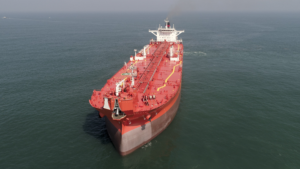Greek Pyxis Tankers, a shipowner of product tankers, sold its oldest tanker Pyxis Malou in the first quarter of 2023 while it had total revenues, net of $11.6 million.
According to the company’s financial results for the first quarter of 2023, its time charter equivalent revenues were $9.2 million, an increase of approximately $5.4 million or 139% from the comparable quarter in 2022.
Pyxis Tankers’ net income was $8.7 million, representing an increase of $12.4 million from a net loss of $3.7 million in the comparable period in 2022.
The shipowner sold on 23rd of March to an unaffiliated buyer its oldest tanker, the 2009 built and Eco-Modified “Pyxis Malou” for $24.8 million in cash, taking advantage of the high asset value environment. The gain on vessel sale was $8.0 million.
In previous transactions, Pyxis Tankers sold two small tankers, “Northsea Alpha” and “Northsea Beta”, on January 28 and March 1, 2022, respectively.
Both vessels had been under spot employment for approximately 7 and 36 days, respectively, in 2022 as of the delivery date to their buyer.
In February 2022, the “Pyxis Epsilon” experienced a brief grounding at port which resulted in minor damages to the vessel. The ship was off-hire for 43 days including shipyard repairs and returned to commercial employment at the end of March 2022.
As of May 15, 2023, Pyxis Tankers’ fleet consisted of four eco-efficient MR2 tankers, “Pyxis Lamda” “Pyxis Theta” “Pyxis Karteria” and “Pyxis Epsilon.” During 2022 and 2023, the vessels in the company’s fleet were employed under time and spot charters.
Valentios Valentis, Chairman and CEO of Pyxis Tankers, commented: “We are pleased to report strong growth in our first fiscal quarter, 2023 financial results with Revenues, net of $11.6 million and Net Income attributable to common shareholders of $8.7 million.”
The shipowner expects in the near-term volatility but believes charter rates to stay above five-year average levels, given the modest inventories of refined petroleum products in a number of locations worldwide, the global effects of the recent G-7 and European Union ban and price caps on seaborne cargoes of Russian refined products as demand in China increases.
Mr. Valentis says “despite ongoing concerns about slowing economic activity globally, potential further OPEC+ production cuts, tighter monetary policies, high inflation and destabilizing geo-political events, supply-side fundamentals reinforce a positive outlook supported by steady volumes and longer transport distances.”



